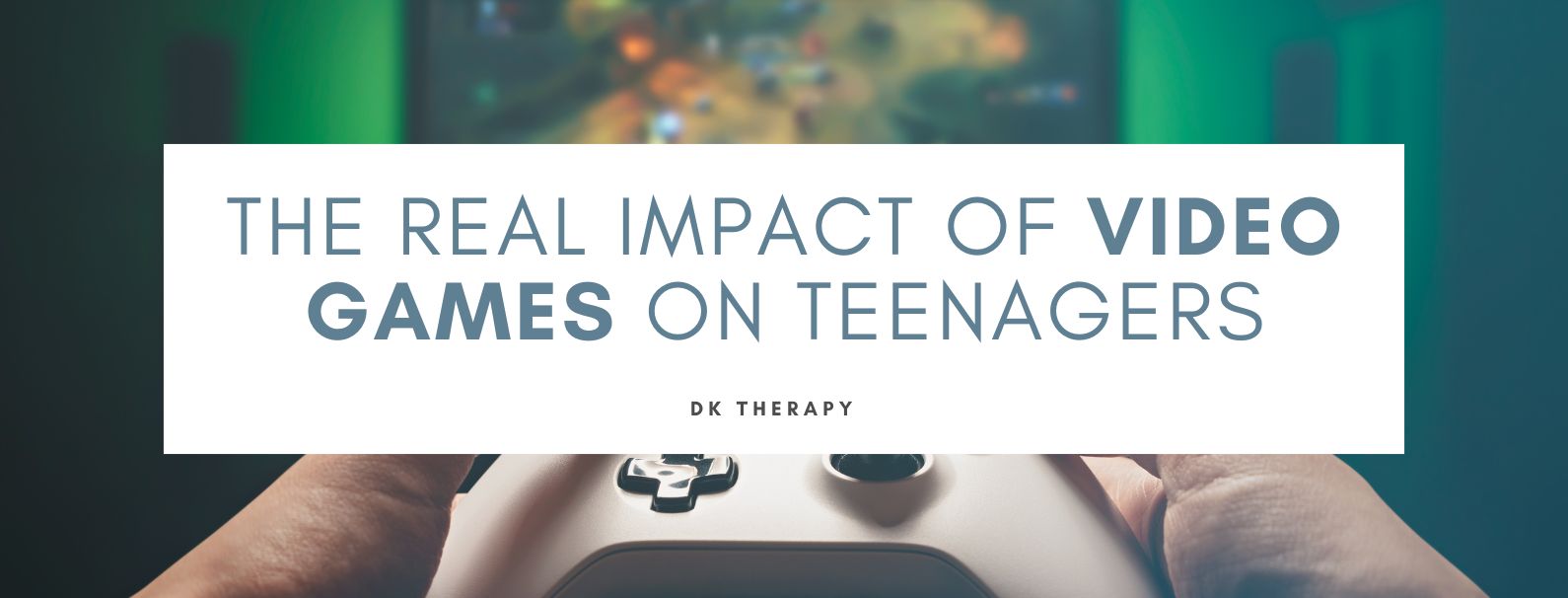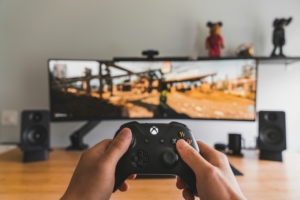
Video games are a normal part of life for many of us, teens and adults alike. Exploring open-world adventures, working together in team-based missions, or competing for speed, teens generally spend a good deal of their time gaming. But what does this mean for their development, mental health, and relationships?
The answer is not as doom-and-gloom as headlines might suggest.
Instead of viewing video games as inherently good or bad, it’s more helpful (not to mention more accurate) to understand their impact through an evidence-based lens.
The Positive Effects of Video Games
Contrary to outdated stereotypes that video games yield either laziness or extreme violence, studies have found positive cognitive, social, and emotional benefits associated with gaming.
 Improved Cognitive Skills
Improved Cognitive Skills
Research from the American Psychological Association (APA) shows that action-oriented games can help players enhance their visual-spatial skills, problem-solving capabilities, and the ability to multitask.
Enhanced Social Connections
Now that gaming exists in online spaces, multiplayer video games can become social hubs. Scores of teens either make new friends online through gaming or play co-op games with current friends. For shy, socially anxious, or physically disabled teens, games can provide a safe environment for building friendships and interacting with others.
Stress Relief
Gaming is a hobby, and most people can understand the stress relief that comes from participating in a hobby. One study noted that casual gaming sessions can reduce stress and improve mood, and when used in moderation, serve as a healthy emotional outlet.
Understanding the Risks
Though gaming presents its share of benefits, too much of a good thing can lead to problems. The issue isn’t so much with gaming itself; instead, it’s important to consider how much time your teen is playing, what sort of video games they enjoy, and why they’re playing in the first place.
Some common concerns include:
Sleep Disruption
The American Academy of Pediatrics warns that screen time before bed can interfere with sleep. Quality sleep is essential for growing minds, as it affects mood, memory retention, and school performance.
Displacement of Other Activities
When gaming takes away from homework, physical activity, or time spent with family, it can become a detriment. Balance is a must, and a healthy routine needs to include sleep, exercise, and offline social interaction.
Risk of Problematic Use
The majority of teens handle gaming responsibilities without developing harmful patterns. That doesn’t mean parents should throw caution to the wind, though. Potential risks include:
- Too Much Screen Time: Spending long hours gaming every day can take a toll on physical and mental health.
- Unsafe Online Interactions: Many popular video games include chat features or online matchmaking, which can expose teens to strangers. Most online interactions are harmless, but there’s always a risk.
- Exposure to Mature or Violent Content: Not all games are appropriate for all ages. Some include intense violence, sexual themes, or other mature content that can be unsettling or confusing for younger players.
Promoting Healthy Gaming Habits
Parents and caregivers don’t need to discourage gaming. Instead, they can help teens build a responsible and enjoyable relationship with it.
- Set Boundaries Together: Rather than enforcing strict limits, involve your teen in setting reasonable screen-time boundaries.
- Stay Curious, Not Critical: Ask your teen what they enjoy about the video games they play. Understanding their motivations opens up communication and reduces defensiveness.
- Encourage a Variety of Games: There are a multitude of game types to choose from. Puzzle games, strategy games, and story-driven adventures can be just as engaging as action titles, and often encourage different types of thinking and creativity.
Video games are a modern form of entertainment with both opportunities and challenges, presenting positives and negatives. The key is in how they are used. With guidance and balance, teens can enjoy gaming in ways that support their development, rather than detract from it.
If you’re struggling and you’d like to have your teen work with a dedicated therapist, please contact DK Therapy and schedule an appointment with our office.




